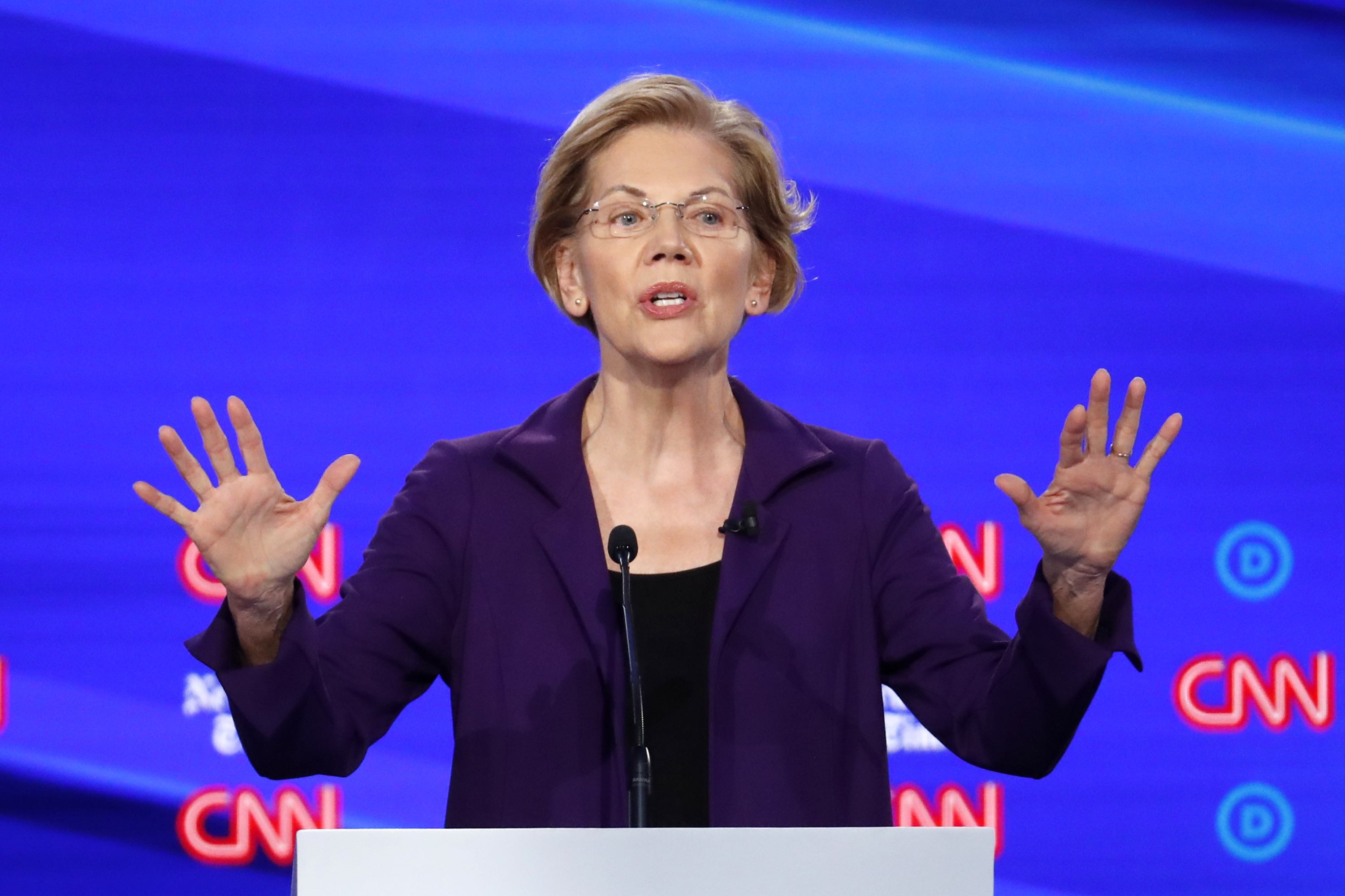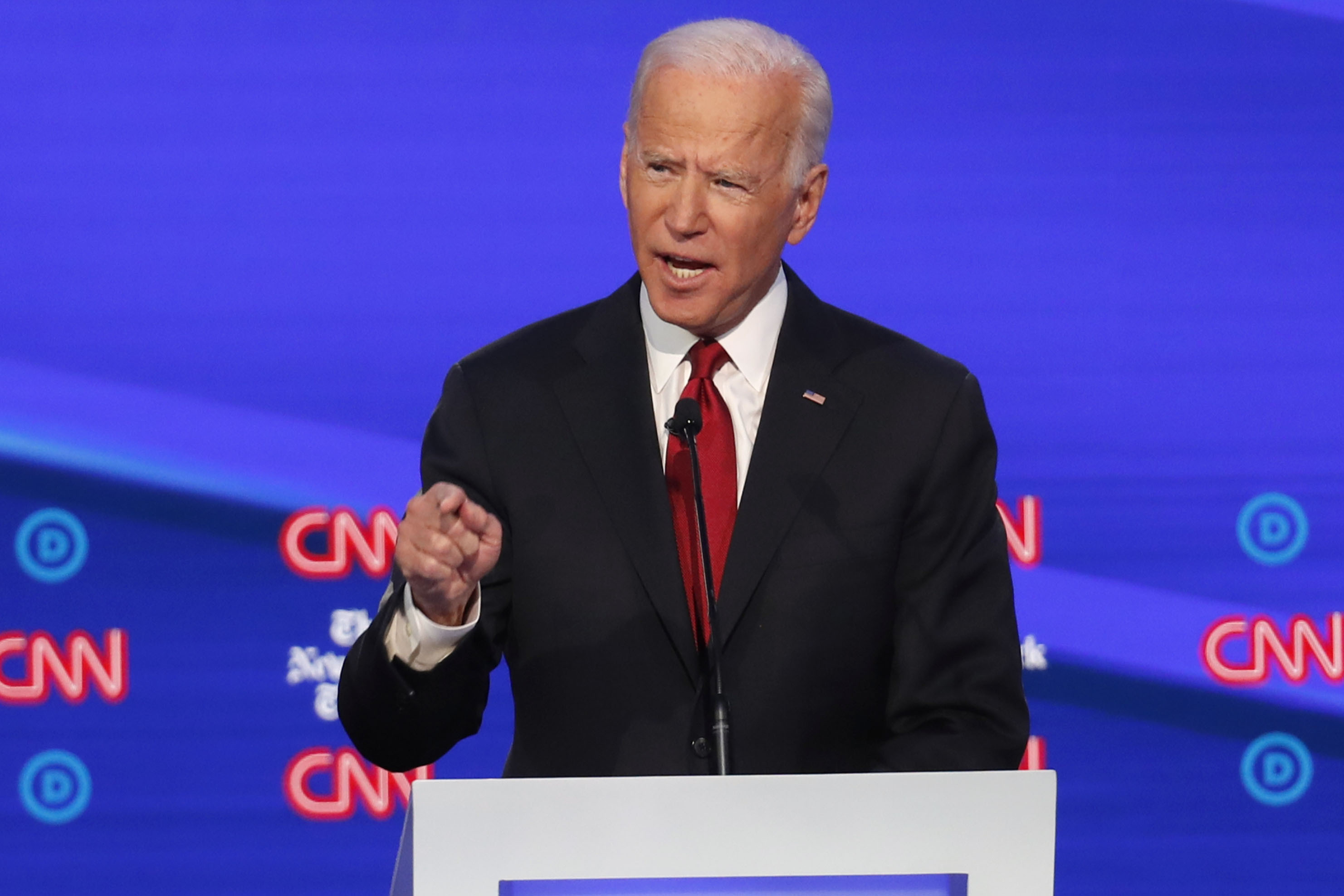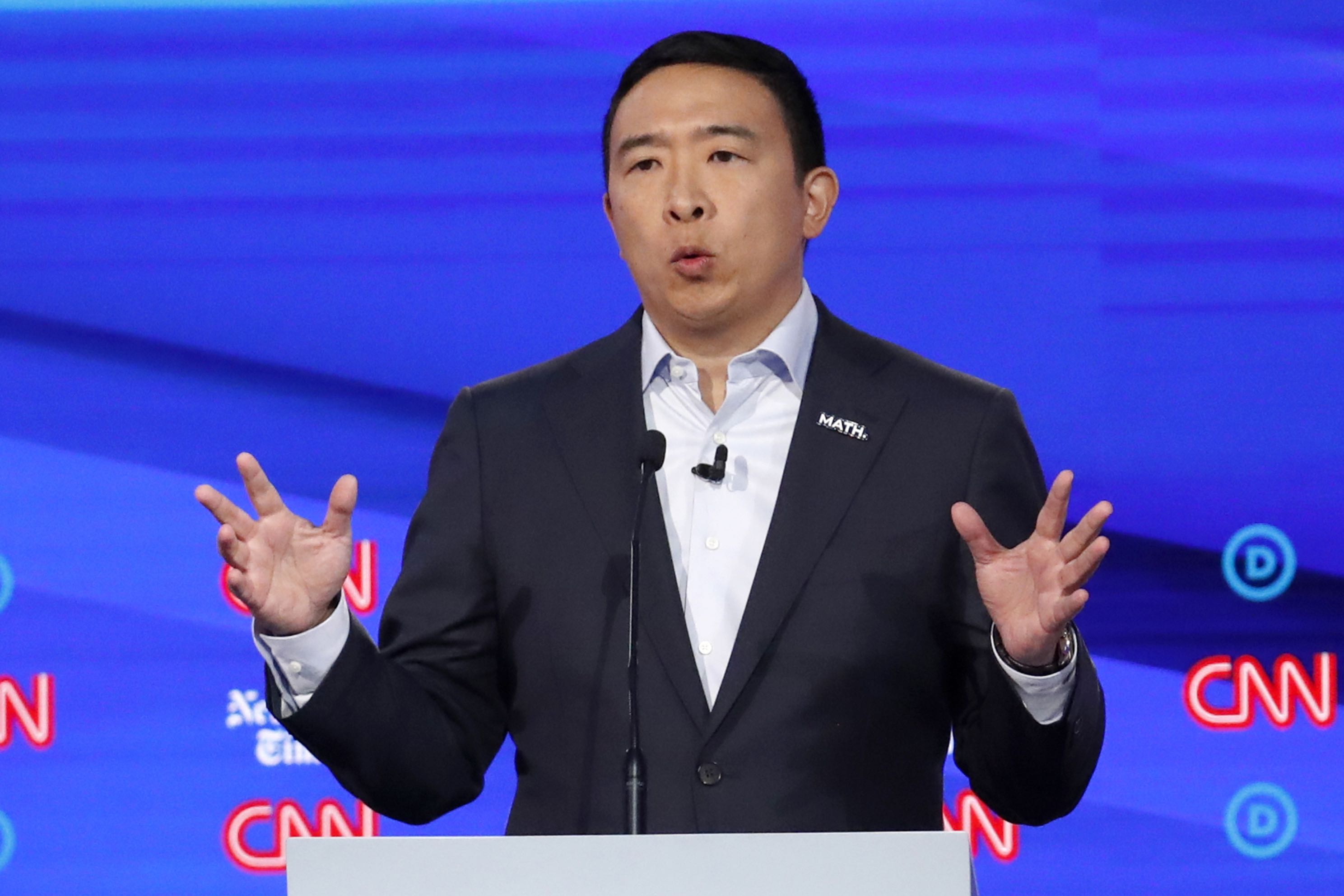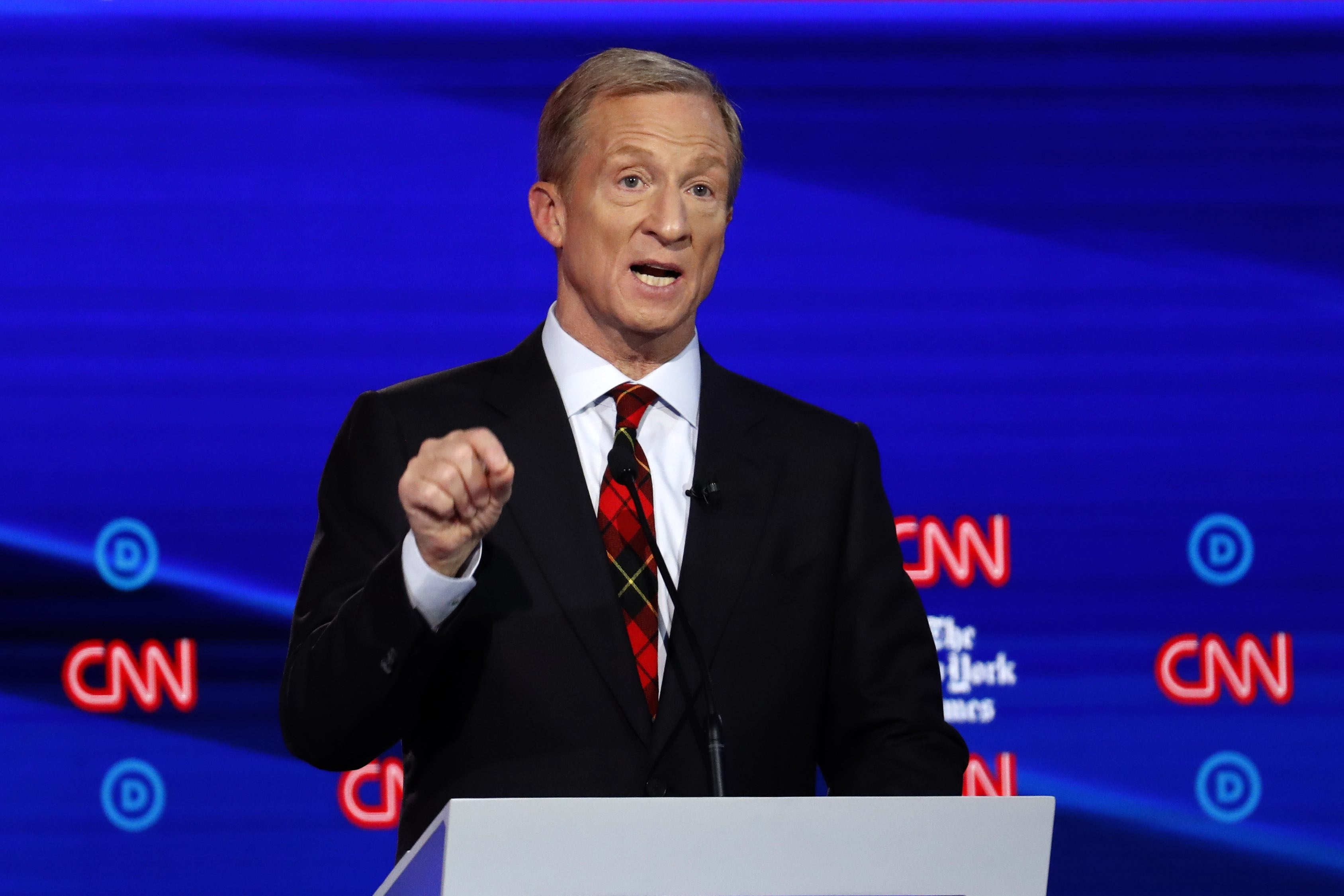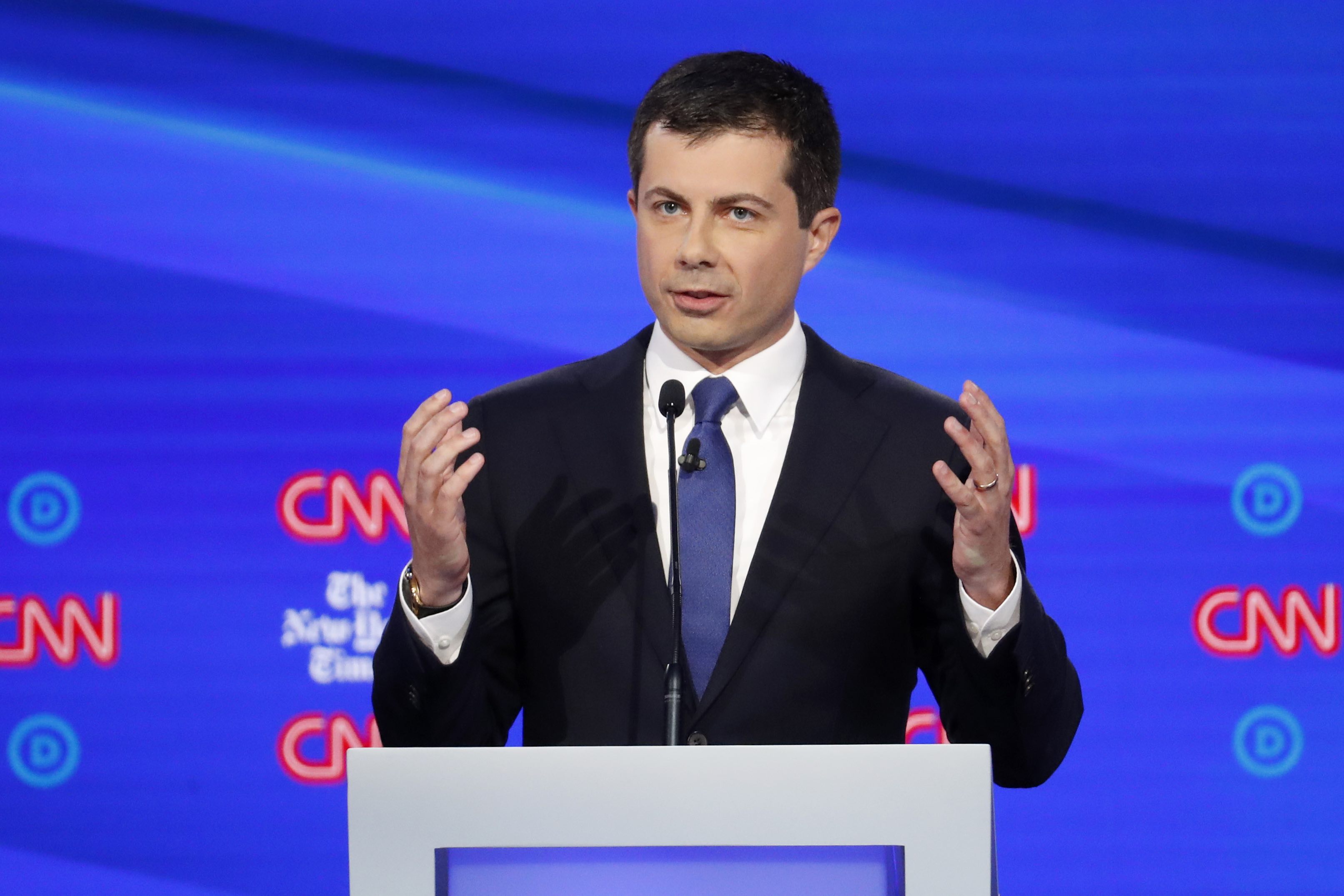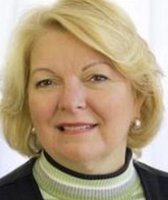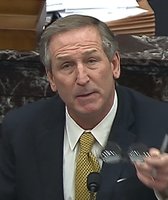Stand up for the facts!
Our only agenda is to publish the truth so you can be an informed participant in democracy.
We need your help.
I would like to contribute
Last updated 4 p.m. Oct. 16
On a crowded debate stage, a dozen Democratic presidential candidates sparred over health care, talked about reining in the excesses of capitalism and debated how to protect workers in an age of technological upheaval.
The evening opened with a volley of questions on impeachment — including President Donald Trump’s attacks on former Vice President Joe Biden and his son Hunter's ties to Ukraine — then pivoted to a dissection of candidates’ policy differences.
PolitiFact fact-checked several statements made by the candidates at the recent debate in Westerville, Ohio.
Andrew Yang on European wealth taxes | Tom Steyer on lack of raises | Pete Buttigieg on Medicare for All popularity
U.S. Sen. Elizabeth Warren, D-Mass., speaks during the Democratic presidential primary debate hosted by CNN/New York Times at Otterbein University on Oct. 15, 2019, in Westerville, Ohio. (AP)
"Back when I was studying it, two out of three families that ended up in bankruptcy after a serious medical problem had health insurance."
— Sen. Elizabeth Warren, D-Mass.
In a back-and-forth about Medicare For All and the cost of health care, Warren directed the discussion back to medical debt and bankruptcy — citing her own work from Harvard Law School. Her wording is precise, but the paper itself is controversial. We rated this statement Mostly True.
Warren’s campaign directed us to research published in 2009 in the American Journal of Medicine. Co-authored by Warren, it looks at a random sample of 2,314 bankruptcy filers from 2007.
The paper examined what debtors reported as their cause of bankruptcy. Warren is referring here to people who either cited significant direct medical debt, remortgaging a home to pay medical debt, or lost income due to illness.
In that category, more than two-thirds of families had health insurance — in fact, three-quarters did. So from that simple standpoint, the number checks out.
But it isn’t necessarily that simple. This specific paper has long been the subject of controversy. In part, it’s because it focuses on people who have declared bankruptcy, rather than looking at the financial impact of medical debt at large.
What’s more suspect is whether this finding — even if accurate — supports her next point: that the cost of health care is what’s driving people’s financial problems, and that a generous single-payer plan would ameliorate this issue.
Former Vice President Joe Biden speaks during the Democratic presidential primary debate at Otterbein University on Oct. 15, 2019, in Westerville, Ohio. (AP)
"For people making between $50,000 and $75,000 a year, their taxes are going up about $5,000 because the fact is, they will pay more in new taxes" for Medicare for All.
— Former Vice President Joe Biden
This is Mostly False.
Biden used an unusual level of specificity in describing how Medicare for all would affect families making between $50,000 and $75,000 per year. His numbers don’t come out of thin air, but they are based on too many assumptions to be reliable.
Biden’s campaign told us the figure was derived from approximating the impact of a 4% income tax, plus a 7.5% payroll tax — financing mechanisms they said have been proposed under Sen. Bernie Sanders’ Medicare for All plan.
When you do the math, that suggests a family making $60,000 would indeed see the tax increase Biden surmised. But this math is problematic on many levels.
For one thing, Sanders’ bill doesn’t actually propose financing Medicare for All through a combined 4% income tax and 7.5% payroll tax. The bill doesn’t include any financing mechanism at all.
Another problem is that highlighting the potential tax burden of Medicare for All without discussing overall costs is misleading.
"Ohio, Michigan, and Pennsylvania actually in the latest jobs data have lost jobs, not gained them."
— Former Housing and Urban Development Secretary Julian Castro
False. Official government figures show that each state gained jobs between July 2019 and August 2019, the latest month-over-month period available. To arrive at his job-loss figure, Castro cherry-picked a time period that he didn’t mention in his remarks — a time period that ignores the existence of the most current data.
His assertion that employment levels have been crumbling in these states is belied by data showing that each state has seen job gains both in the past year and since Trump took office.
"Just two days ago The New York Times put out an article saying I’m a Russian asset and an Assad apologist and all these different smears. This morning a CNN commentator said on national television that I am an asset of Russia. Completely despicable."
— U.S. Rep. Tulsi Gabbard, D-Hawaii
The accuracy of Gabbard’s claim is mixed.
Let’s start with the New York Times, which co-hosted the debate with CNN. Gabbard appeared to be referring to an Oct. 12 article that carried the headline, "What, Exactly, Is Tulsi Gabbard Up To?"
Political reporter Lisa Lerer’s article characterized Gabbard as injecting chaos in the 2020 race, citing the Hawaii congresswoman’s threat to boycott the debate over her claim that Democrats and corporate media are trying to "rig" the election.
The article does not explicitly call Gabbard a Russian asset. Rather, it explores why she has garnered support from alt-right and white nationalist activists, and notes that some Democrats "worry about supportive signs from online bot activity and the Russian news media."
Gabbard is right that a CNN commentator called her a Russian asset. Bakari Sellers, a former state legislator in South Carolina, leveled the charge during an Oct. 15 panel discussion.
"There is a chance that Tulsi is not just working for the United States of America," Sellers said, later adding, "There is no question that Tulsi Gabbard — among all the 12 — is a puppet for the Russian government."
"We are in a state that has had two Planned Parenthoods close."
— Sen. Cory Booker, D-N.J.
Booker is right. Two Planned Parenthood clinics, which provide reproductive planning services such as abortion, announced they were closing in Cincinnati, Ohio, in early September. Their last day of service was Sept. 20, and neither provided abortions.
The move came less than a month after Planned Parenthood said it would stop participating in a federal program that supports family planning services. The organization received about $60 million annually through Title X, a federal grant program.
Planned Parenthood pulled out of the program after the Trump administration issued a rule that forbids clinics with Title X funding from referring women to abortion providers. The Washington Post reported that, where the withdrawal didn’t force the closure of health centers, it did result in higher fees and waiting times for some.
There are still 24 Planned Parenthood health centers around Ohio. Five are operated by Planned Parenthood Southwest Ohio, where the two locations recently closed.
Entrepreneur Andrew Yang speaks during the Oct. 15, 2019, Democratic presidential primary debate in Westerville, Ohio. (AP)
"A wealth tax makes a lot of sense in principle. The problem is it's been tried in Germany, France, Denmark, Sweden and all those countries ended up repealing it because it had massive implementation problems and did not generate the revenue that they projected."
— Andrew Yang
Yang was responding to Sen. Elizabeth Warren’s proposal to directly tax the wealth of American billionaires. His claim is accurate, but it’s unclear whether the same problems would extend to the United States.
Warren’s Ultra-Millionaire Tax, the first of its kind, would tax fortunes of more than $50 million at 2% annually. She has touted the proposal as a way to pay for universal childcare and universal college tuition programs, but we have found reasons to doubt her math.
Yang’s claim about the failure of wealth taxes in Europe is similar to one we fact-checked in April. We rated that claim Mostly True.
Data from the Organization for Economic Cooperation and Development, an international body based in Paris, show that 12 or 13 countries collected revenues from net wealth taxes in 1996. (The tally differs slightly based on how you measure it.)
Nine European countries have ended their wealth taxes since then. (Today, six or seven European nations have some form of wealth tax.) And the reason why has to do with how difficult it is to levy them.
A 2015 review of the wealth tax option by the European Commission found that determining the value of people’s assets was difficult and that cheating was easier. A 2018 report from the OECD said revenues collected from wealth taxes were generally low and that there were several "efficiency and administrative concerns."
However, we’ve spoken to experts who say the same thing wouldn’t necessarily happen in the United States. There’s a difference in the overall tax regimes, and OECD analysts said that arguments for and against wealth taxes depend on how other tax laws would work with Warren’s proposal.
Businessman Tom Steyer answers a question during the Democratic presidential primary debate Oct. 15, 2019, in Westerville, Ohio. (AP)
"People haven’t had a raise — 90% of Americans have not had a raise for 40 years."
— Tom Steyer
This isn’t accurate.
A study by the Congressional Budget Office, the nonpartisan number-crunching arm of Congress, found that between 1979 and 2015, the top 1% of earners did see the fastest gains, but the three other income ranges – the lowest 20%, the middle 60%, the 81st percentile to the 99th percentile – did see gains. (These figures were adjusted for inflation and federal taxes, but not for state and local taxes.)
In April, Gary Burtless, an economist with the Brookings Institution, told us that the data since 2015 would likely show additional increases, since incomes across all the income distribution have improved since 2015.
We did find a different statistic that makes Steyer’s claim closer to the mark, though still not accurate. The share of national income taken by the bottom 90 percent has indeed declined since 1973.
The dueling statistics show that people can see their share of the pie decrease yet still receive a raise in absolute terms.
South Bend Mayor Pete Buttigieg speaks during the Democratic presidential primary debate hosted by CNN/New York Times at on Oct. 15, 2019, in Westerville, Ohio. (AP)
Americans "say that what they want is a choice" to join a single-payer system like Medicare rather than ending private insurance.
— Pete Buttigieg, mayor of South Bend, Indiana
Buttigieg sparred with Elizabeth Warren over how to expand health insurance coverage for all Americans.
Buttigieg said he favors allowing Americans younger than 65 to enroll in Medicare if they wish. Warren, by contrast, prefers to transition all Americans from their current insurance plan to government coverage.
And Buttigieg said Americans support his approach more than they support Warren’s.
Polls from 2019 bear out his argument.
Notably, a poll conducted by the Kaiser Family Foundation in January 2019 found 56% support for a Warren-style plan, with 42% opposed. By contrast, the Buttigieg approach won support from 74% of respondents, compared to opposition from just 24%.
Indeed, Kaiser’s polling shows a steady rise in support for the Buttigieg approach and a steady decline for Warren’s approach over the course of the year.
We rated the statement True.
"I agree with Hillary Clinton on one thing, disagree with her on many others. But when she said abortion should be ‘safe, legal and rare,’ I think she’s correct."
— U.S. Rep. Tulsi Gabbard, D-Hawaii
Clinton did say that, but it needs context. It’s worth noting that the line appears to have been publicly used first by her husband, President Bill Clinton, in 1996, and adopted by Hilary Clinton when she was First Lady. Also, Clinton appears to have dropped the "rare" part of the line in 2016.
"Despite our differences, there are certain core beliefs and values that tie us together and set us apart as Americans," she said during remarks in January 1999 before the abortion rights group NARAL. "And it is those beliefs that can guide us in reaching our goal of keeping abortion safe, legal and rare into the next century."
During Clinton’s 2008 presidential campaign, she took a question from a voter who asked how she would bridge the divide on abortion. Clinton replied that her longstanding position is that "abortion should be safe, legal and rare — and by ‘rare,’ I mean rare."
She dropped the word "rare" from her policy pronouncements when she ran for president again in 2016 during an interview: "You know, I've been on record for many years about where I stand on abortion, how it should be safe and legal, and I have the same position that I've had for a very long time."
"I never discussed a single thing with my son about anything having to do with Ukraine. No one has indicated I have. We've always kept everything separate."
— Former Vice President Joe Biden
Former Vice President Joe Biden’s claim slightly contradicts what Hunter Biden said during a new interview with ABC News, when he confirmed reporting from the New Yorker that the two had shared one brief exchange about his work for Burisma Holdings, a Ukrainian gas company.
Hunter Biden told the New Yorker that his father briefly mentioned his work with Burisma only once. Here’s how the younger Biden characterized the conversation to the New Yorker: "Dad said, ‘I hope you know what you are doing,’ and I said, ‘I do.’"
Still, it’s not clear that the two ever spoke at length about the matter. When ABC’s Amy Robach asked Hunter Biden if he and his father had ever discussed Ukraine, the younger Biden said their one chat didn’t amount to a full-fledged discussion.
"As I said, the only time was after a news account, and it wasn’t a discussion in any way," he said. "There’s no but to this. No. We never did."
Robach then asked specifically about his quote in the New Yorker story, and Biden confirmed that the quote was accurate: "I said, ‘I do,’ and that was literally the end of our discussion."
CORRECTION: An earlier version of this story misreported the number of Planned Parenthood centers still in Ohio. The correct number is 24, Planned Parenthood told us.
Our Sources
See fact-checks and related links.


